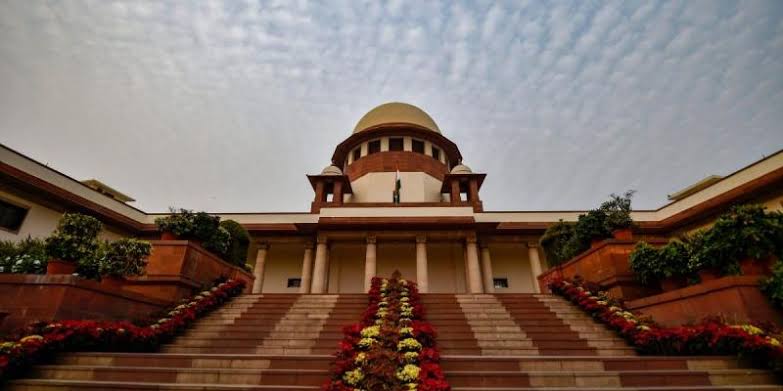The Supreme Court on Wednesday issued notice on a petition filed by the Indian Broadcasting Foundation (IBF), challenging the Bombay High Court judgment, which upheld the New Tariff Order (NTO) of the Telecom Regulatory Authority of India (TRAI), putting a cap on the MRP of individual channels.
The bench, comprising Chief Justice of India N.V. Ramana and Justices Surya Kant and Aniruddha Bose, however, refrained from issuing an interim order in the matter. The petition, filed by IBF, challenged the constitutionality of the amended New Tariff Order (NTO 2.0) passed by TRAI.
Earlier on August 6, the apex court had posted the matter for August 18.
On June 30, the Bombay High Court had upheld the TRAI’s amendments to the New Tariff Order that outlines how TV channels should be priced, which the regulator issued in January, 2020.
The Bombay High Court‘s observation that broadcasters have a right to freedom of speech and expression, but it is not absolute, infringes on their fundamental right to freedom of speech, the petitioners said.
IBF, a unified representative body of television broadcasters in India, had moved the Bombay high Court against TRAI’s amended new tariff order (NTO), soon after it came out in January, 2020. Meanwhile, the telecom regulator had filed caveats in all major high courts against issuing a stay without hearing what it has to say in the matter.
Broadcasters that had come together under the IBF umbrella to take on TRAI included Star India, Zee Entertainment Enterprises Ltd and Sony Pictures Networks.
Also Read: Bombay High Court issues notice on narrow overbridge on National Highway 53
According to the new tariff order, consumers can choose the TV channels they want to watch and pay only for them at maximum retail prices (MRPs) set by broadcasters, instead of the pre-set bouquets offered earlier. The new tariff order was expected to make channels cheaper for the consumer and offer more choice. However, on ground, the opposite happened as the cost of like-to-like channel options went up.
To bring down the cost of entertainment for the end consumer, TRAI had announced amendments to the NTO on January 1, 2020. As part of the new amendments, TRAI reduced the cap on the MRP of individual channels, which can form part of any bouquet to Rs 12 from Rs 19 per month, which the IBF said had not been backed by any logical rationale or consumer insight. The regulator also sought to impose twin conditions for bouquet formation, effectively introducing a cap on bouquet pricing, which broadcasters felt would limit the number of channels in the bouquet and reduce the value delivered to consumers.
Senior advocate Mukul Rohatgi, representing one of the petitioners, argued that the price of channels cannot be regulated under any provision of law and this right is protected under Article 19(1)(g). The bench also comprising Justices Surya Kant and Aniruddha Bose, said: “We have to issue notice and senior counsel don’t have to labour on it.” The bench further added that it will not pass an interim order in the matter today. The top court has listed the matter for further hearing on September 7, to consider interim order.
The top court was hearing an appeal challenging the judgment of the Bombay High Court which partially upheld the validity of the New Tariff Order (NTO) issued by TRAI in January 2020 prescribing price ceilings on the rates charged by television channels. In June, the high court, while upholding the NTO, had struck down one of the pricing conditions as unconstitutional. The high court upheld the constitutional validity of the NTO of the TRAI published by it in January, 2020 except for one of the conditions regarding pricing and clarified that TRAI will not take any “coercive action” against non-compliance by the broadcasters for another six weeks.


